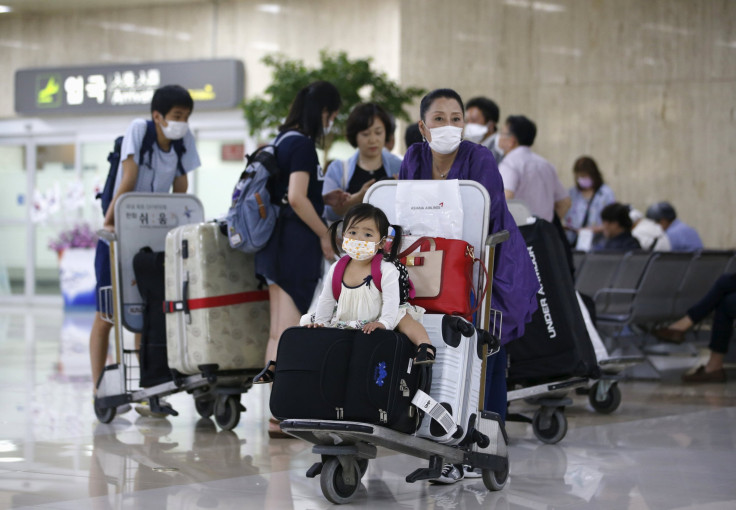MERS Outbreak 2015: South Korea Death Toll Rises To 23, 3 New Cases Diagnosed

South Korean health ministry said three more people died of the Middle East Respiratory Syndrome (MERS), raising the death toll to 23 in the country, state-run news agency Yonhap reported on Thursday. This also brings the fatality rate due to the virus to 14 percent as the country struggles to control its spread.
Three new cases of MERS were also diagnosed in South Korea on Thursday, taking the total number of infected people to 165. Two of the new cases were of nurses, who treated MERS patients at two local hospitals.
Two of the three people who died were in their 60s and were already battling health issues such as tuberculosis and high blood pressure prior to the MERS infection. Their condition reportedly worsened due to the disease, leading to their deaths. The third person -- an 82-year-old woman working in a hospital in the central South Korean city of Daejeon -- was tending to an infected patient.
While over 80 percent of the people, who died due to the respiratory disease, were over 60 years of age, 91 percent of the people already had health issues prior to the infection.
So far, most of the transmissions from MERS have taken place in hospitals. A report from the World Health Organization (WHO), cited by Yonhap, said that there have not been any community transmissions of the disease until now. Over 6,700 people have been kept in isolation in South Korea while the number of hospitals affected by MERS rose to 84 by Tuesday.
The first case of MERS in South Korea in May can be traced back to a 68-year-old man, who returned after traveling to the Middle East.
The disease, which does not have any vaccine or cure yet, has put pressure on the country’s tourism industry with people canceling their trips. According to a survey by travel risk management company On Call International, over 70 percent Americans would cancel their trips to South Korea amid the outbreak, despite assurances from the WHO and Centers for Disease Control. Dr. Robert Wheeler, Chief Medical Officer at New Hampshire's On Call International, said in a statement on Wednesday that travelers can remain safe if they follow a strict personal hygiene.
“If a person does plan to travel to South Korea, they should keep informed of the current status of the MERS-CoV (MERS Coronavirus) outbreak, avoid areas that are most affected by the outbreak and avoid contact with people with a known or suspected diagnosis of MERS-CoV or have respiratory symptoms that could be caused by MERS-CoV. Lastly, travelers should practice good personal hygiene by washing their hands with soap and water, or using an alcohol-based hand sanitizer, several times a day.” Wheeler said.
© Copyright IBTimes 2025. All rights reserved.






















